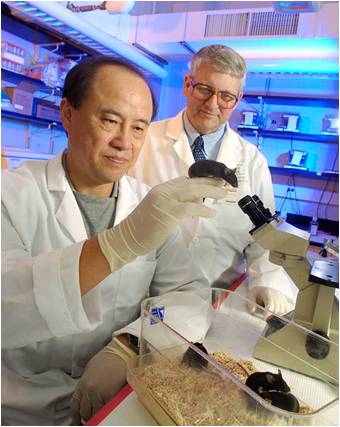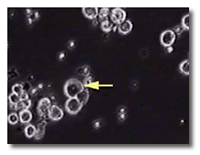
We have been in business for the last 10 years, proudly serving the community. Our unparalleled service, competitive prices, and overall value are why our customers keep returning. We look forward to your patronage.
Munogenics, Inc. develops, tests, and licenses novel biological methods for treating and preventing malignant diseases in humans. The Company has a proprietary revolutionary platform for cancer treatment that shows exceptional efficacy and minimal side effect in treating cancers.
In collaboration with a research team led by Dr. Zheng Cui, MD/PhD, at Wake Forest University, Munogenics will commercialize a new cancer treatment, termed the GIFT (Granulocyte InFusion Therapy) process, and the CKA
(Cancer Killing Activity) test with the goal of eliminating various types of cancers in humans.
The diagnosis of cancer consumes a large percentage of many pathologists' time. The huge variety of types of tumors that occur in people requires complex analysis to plan correct treatment and to determine a patient's prognosis.
Diagnostic testing enables pathologists to learn how large a primary tumor has grown, how extensively it has spread and — most importantly — exactly what type of cancer it is.
When they think of cancer, most people assume that these various tumor types, once they occur, are inexorable in their progression unless they are successfully stopped by treatment. Pathologists often think the same way, in large part because the examples we see most often are in those patients in whom cancer has progressed to a size sufficient to be detected.
Occasional inklings from earlier laboratory studies, however, and some rare patient reports, suggest that cancer sometimes spontaneously disappears without treatment. Because such cases are extremely rare, and essentially impossible to study, many scientists have dismissed the phenomenon of "spontaneous regression" of cancer as either a mistaken diagnosis or fiction. Yet, such cases have actually been carefully documented in the past, and they certainly do happen.
Do these reports suggest that cancer cells really do not grow "in a vacuum," but are affected by control mechanisms that already exist in the body? Does cancer reach a detectable size because these controls have failed? If so, could such controls be identified, and enhanced in patients to provide new therapies? In fact, how do cancer cells actually “succeed” in patients? Do they actively inhibit protective processes that ordinarily would prevent cancer? Do cancers occur continuously during our lifetimes, yet are eliminated by internal mechanisms so that they are never seen?
The answers to such questions are the stuff of speculation, but new discoveries at Wake Forest University have shown that some of these ideas may not be so far-fetched.
Home





